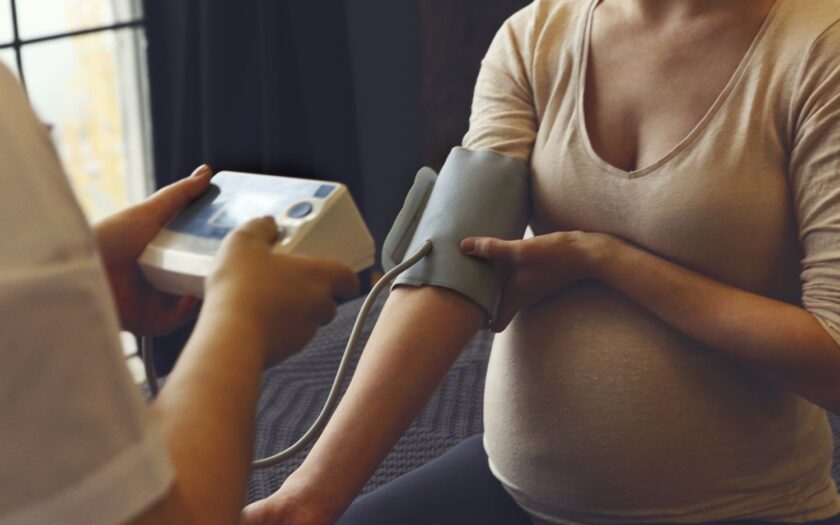Exercising and engaging in sports while pregnant can offer numerous benefits, including maintaining overall fitness, managing weight gain, and boosting your mental well-being. Regular physical activity can also reduce the risk of pregnancy complications such as gestational diabetes, help manage blood pressure, and improve your ability to cope with the physical demands of pregnancy. Additionally, staying active may strengthen your pelvic floor muscles, which can help prevent incontinence and support a smoother labor and recovery process. Always consult with your healthcare provider before starting or modifying your exercise routine to ensure it is safe and appropriate for your specific situation.
Safe and Recommended Sports During Pregnancy: Finding the Right Activities for You
During pregnancy, incorporating both strengthening exercises and pelvic floor exercises is highly recommended to support your body and prepare for childbirth. Medium-intensity aerobic activities are also beneficial, and suitable options include:
- brisk walking;
- cycling;
- swimming.
It’s important to choose lower-risk activities that are non-contact or have minimal contact, support your weight, and avoid sudden changes in position. Activities should have a low risk of falling and should allow you to maintain a low to moderate intensity. Exercises specifically designed for pregnancy, such as swimming and aqua-natal classes, can be particularly supportive, though you should avoid heated pools and spas to prevent overheating.
Exploring exercises tailored for pregnancy, including yoga and Pilates, can provide additional benefits. These exercises can help with flexibility, strength, and relaxation. Always consult with your healthcare provider before starting any new exercise routine to ensure it aligns with your individual health needs and pregnancy conditions.
Tailoring Sports and Exercise to Your Fitness Level During Pregnancy
Your approach to physical activity during pregnancy should be influenced by your current fitness level, but it’s essential to consult with your doctor or midwife before starting any exercise routine. They can help tailor recommendations based on your health, fitness level, and any specific pregnancy-related considerations. Whether you’re a seasoned athlete or new to exercise, a healthcare professional can guide you in choosing safe activities that support your well-being and accommodate any physical limitations or conditions. Regular communication with your healthcare provider ensures that your exercise regimen is both safe and effective for your unique situation.
Getting Started: Exercising During Pregnancy When You’re Not Currently Active
If you’re looking to start exercising during pregnancy and are not currently active, opt for activities that require less effort to ease into your new routine. Begin with 15 to 20 minutes per session, focusing on low-impact exercises that are gentle on your body. Gradually increase your activity duration to 30 minutes of moderate-intensity exercise as your fitness improves. Choose activities such as walking, swimming, or prenatal yoga that accommodate your changing body and support overall well-being. Always listen to your body and consult with your healthcare provider to ensure the activities are safe and appropriate for your pregnancy.
Maintaining an Active Lifestyle During Pregnancy: Tips for Those Already Exercising
Maintaining an active lifestyle during pregnancy can have numerous benefits, including improved physical fitness and reduced stress. For those who are already accustomed to regular exercise, adapting your routine to accommodate your changing body is key to staying healthy and comfortable. This guide offers tips on how to continue exercising safely while navigating the unique demands of pregnancy.
If you’re already active, healthy, and experiencing an uncomplicated pregnancy, you can generally continue your exercise routine with some adjustments. However, it’s crucial to avoid any sports or activities that are not recommended during pregnancy. While you can maintain your usual level of exercise, it’s important not to push beyond your typical intensity or performance levels.
To ensure a safe and comfortable workout experience:
- stay Comfortable. Choose activities that accommodate your changing body and avoid any that cause discomfort or strain;
- warm Up. Always take time to warm up before engaging in physical activity to prepare your body and reduce the risk of injury;
- cool Down. Incorporate a cool-down period after your exercise to help your body transition back to a resting state and prevent muscle soreness.
Additionally, listen to your body and make modifications as needed. Regular check-ins with your healthcare provider can help you tailor your exercise routine to ensure it remains safe and beneficial throughout your pregnancy
Continuing your exercise routine during pregnancy can support your overall well-being and help you stay healthy. By making thoughtful adjustments and listening to your body, you can maintain your active lifestyle safely. Always consult with your healthcare provider to ensure your activities are appropriate for your stage of pregnancy and to address any concerns.
Understanding the Risks of Sports During Pregnancy: What You Need to Know
Physical activity during pregnancy is generally safe and beneficial, but it’s important to be mindful of the risks associated with certain sports. While staying active can enhance your health, some sports may pose risks to both you and your baby.
- First Trimester (1 to 12 Weeks). During the early stages of pregnancy, it’s crucial to keep cool to protect both yourself and your baby. To prevent overheating:
- avoid exercising in hot or humid conditions;
- wear loose, breathable clothing;
- drink plenty of water to stay hydrated.
- Second and Third Trimesters (13 to 40 Weeks). As your pregnancy progresses, your baby moves beyond the protective confines of your pelvis, so it’s important to avoid high-impact sports that could pose a risk of injury. Your shifting center of gravity increases the risk of falls, so if you feel unsteady or uncomfortable, it’s best to stop. Additionally, avoid exercises that require lying on your back after 16 weeks, as this position can affect blood flow and cause dizziness.
The loosening of ligaments during pregnancy increases the risk of injuries, so steer clear of activities involving heavy weights, sudden movements, or rapid changes in direction, such as court sports like tennis and squash. Be mindful of your blood pressure, which may drop during pregnancy. To minimize dizziness, make slow, deliberate movements when changing positions, such as transitioning from sitting to standing.
Always consult with your healthcare provider to tailor your exercise routine to your specific needs and ensure it is safe throughout your pregnancy.
Managing Sports Participation with Pre-existing Medical Conditions
Engaging in sports while managing pre-existing medical conditions requires careful consideration and planning. Your maternity team can provide essential guidance to ensure that your chosen activities are safe and appropriate for both you and your baby. By understanding the specific risks and adjustments needed, you can maintain a healthy and active lifestyle throughout your pregnancy.
Your maternity team should be consulted before engaging in sports if you have certain medical conditions or pregnancy-related issues. This includes conditions such as:
- heart or lung problems;
- uncontrolled diabetes;
- obesity or being underweight;
- complications with your current or previous pregnancies;
- anaemia;
- multiple pregnancies (e.g., twins or triplets).
Things to Watch Out For. During exercise, stop immediately and seek medical attention if you experience:
- chest pain;
- unusual shortness of breath;
- decreased fetal movements;
- contractions or abdominal pain;
- vaginal leakage or bleeding.
Also, consult your doctor if you notice:
- sudden swelling in your ankles, hands, or face;
- pain or swelling in your calves;
- muscle weakness;
- dizziness or faintness.
Sports to Avoid. To ensure the safety of both you and your baby, avoid sports that:
- cause excessive exertion or overheating;
- pose a risk of falling;
- Might impact your baby;
- involve high-impact activities like jumping or bouncing;
- include diving or activities at high altitudes
- require heavy weightlifting;
- involve sudden movements or rapid changes in direction.
Always inform your maternity team about any sports or physical activities you are involved in to ensure they are safe for your specific situation.
Navigating sports participation with pre-existing medical conditions involves careful management and open communication with your healthcare providers. By following their advice and monitoring any changes in your health, you can safely enjoy physical activity while minimizing risks. Prioritizing both your well-being and that of your baby ensures a balanced and supportive approach to staying active during pregnancy.



